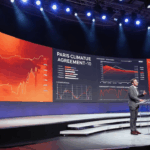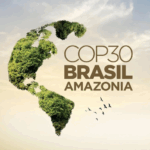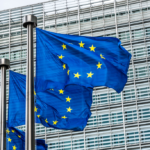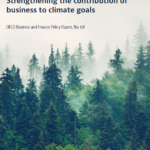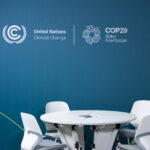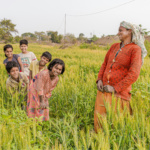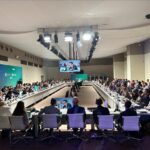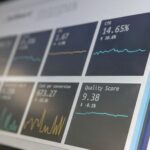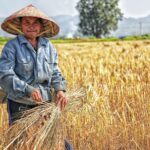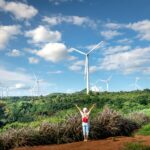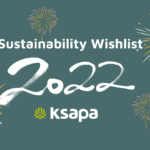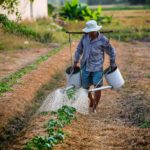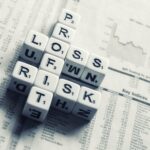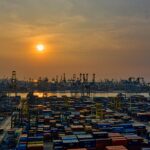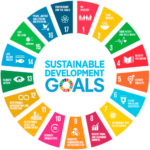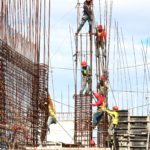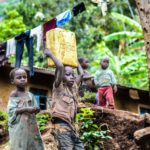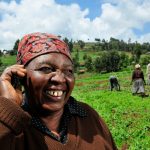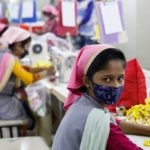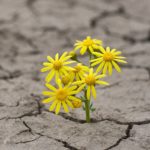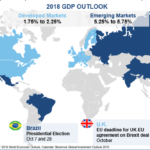In an explosive social context, recovering from the Covid-19 pandemic requires a sober review of how we create – and, above all, share – wealth among employees, throughout value chains and across territories. Addressing the issue of working conditions and living standards is made all the more urgent by the fact the digital era has tended to undermine employability, while workplace discriminations shed light on tensions crystallized around socio-economic backgrounds, gender, disabilities, sexual orientations and age.
Should just one figure sum up the challenge of inclusive growth for businesses and investors, it might be this: reducing the employment and wage gaps of people subject to discrimination based on their gender or ethnic origin could yield 150 billion euros to a country like France in 20 years. Given the deteriorated post-coronavirus context piles up on preexisting tensions, special attention must be paid to so-called vulnerable social groups. Indeed, the Black Lives Matter movement did not wait for the pandemic to disproportionately affect the Afro-American community to rise up against racially-motivated policing. Demonstrations across the United States demonstrate rampant territorial fractures, while the destruction of private property pales in comparison to voter suppression and the broader breaches in the American social contract.
“How can we hope to innovate when we deprive ourselves of the necessary diversity? How we can we develop sustainable economic activity in unstable and fractured territories?”
Perhaps the key word in inclusive growth is coherence – in businesses’ efforts to structure meaningful stakeholder engagement as they scramble to address the looming recession as well as in public policies, particularly in the realm of tax cuts. Commitments to inclusive growth tend to be highly-publicized while the going is good. At a time certain states are temporarily sacrificing Labor Law to the post-coronavirus recovery, inclusive growth may prove a challenge. To examine the underlying challenges and solutions, Ksapa welcomed Sarah Tesei (Social Responsibility Director, Vinci, a global player in concessions and construction, employing over 222,000 people) and Alexandre Braïlowsky (Social Responsibility Director, Engie, a global reference in low-carbon energy and services, employing over 170,000 people).
A Practice Rooted in Fieldwork
Inclusive growth was never meant to be conceptual. Actual progress happens in the field. Through its teams and networks, Ksapa brings a rich and varied field experience in inclusive growth policies. Likewise, the speakers invited to our webinar both came with extensive field experience. The consensus is resoundingly clear: direct exposure to fieldwork is essential – and, with it, un-intermediated rapport with employees, partners, subcontractors and local communities.
Inclusive growth is often associated with distant territories. On the contrary, the extent of entrenched inequalities has been brought to bear by the global Covid-19 pandemic – be it in the United States or India; in France as in Malaysia. Indeed, thousands of undocumented agricultural workers stranded in Southern Spain were left to cram into cardboard and plastic shelters, without running water or food. Likewise, those who produce fashionable garments for Europeans were largely left without protection against the coronavirus and worked in conditions akin to forced or bonded labor falling under the scope of modern slavery laws.
Dialog is Only Effective if Concrete and Realistic
An inclusive growth policy is necessarily cross-cutting and involves multiple stakeholders. It has to be grounded a dynamic and constructive dialog with stakeholders, who are in a prime position identify priority issues as close as possible to the ground and across increasingly complex value chains. While dialog shapes a company’s ability to effectively manage risks, it is also one of the fundamentals of the French law on the Duty of Vigilance.
Inclusive growth also implies a long-term managerial approach, to support and sustain dialog with strategic suppliers, as part of a continuous improvement process. Only in extreme situations may human rights violations force a company to terminate business relations altogether. In the spirit of the United Nations Guiding Principles, key economic players are otherwise encouraged to use their influence to change practices, given ending activities is all but conducive to improving practices on the ground.
Finally, inclusive growth calls for a good understanding of social and territorial dynamics. If Engie hopes to assert itself as a leader in the energy transition, its approach cannot suffer to be solely technological, it must also – and perhaps above all – be fair. For instance, phasing out coal must anticipate major impacts for producing communities – oftentimes in socially explosive contexts, as in Colombia and Australia. Conversely, the Group has opted to open the financing of wind and solar energy projects to local populations: the acceptability of renewable energies is all the greater, given neighboring communities have a direct stake in their development. This approach extends beyond a logic of territorial attractiveness, by investing in their sustainable development.
Collective Action: an Imperious Necessity
The complexity of issues encountered in the field is nothing new – making the role of multi-stakeholder collaboration equally obvious. The scale of the Covid-19 pandemic reinforces such assertions, pushing businesses to recognize they alone do not have the power to drive the change necessary to design and roll-out effective inclusive programs.
In an increasingly volatile social context, we cannot overemphasize multisectoral co-construction faces the very real challenge all players involved must all learn to listen and work together. This reality predates Covid-19. Now public and private decision-makers alike, multinationals and small or medium-sized enterprises, investors and trade unions or civil society organizations must all proceed faster and better. Regardless, many companies struggle to work with their stakeholders, despite the growing demand for consultation, transparency and streamlined processes. Make sure you tune in for Ksapa’s October 27 webinar, as we will be unravelling the challenges of stakeholder engagement in an contentious digital era.
Transitioning from a shareholder to a stakeholder capitalism hinges on results and impact.
- The credibility of this approach relies on our collective capacity to use available resources differently, to learn from failure as much as success and identify progress areas. This will be the topic of our 29 September webinar, where Ksapa will examine the capacity of innovative financing to accelerate climate transition or accelerate the circular economy throughout the value chain amid the Covid-19 recession.
- Finally, businesses must demonstrate impact against their inclusive growth policies, for which tools and benchmarks are readily available. Ksapa has for instance supported the World Bank’s DIME program as well as the IRIS+ reference system. Both are open source and address stakeholder expectations in terms of setting comparable goals. The next logical step for an inclusive enterprise is to prioritize quantitative or qualitative indicators and develop more granular analyses for its key populations segments. For instance, a company committed to creating jobs in its territories of operations would, over several years of working locally, be able to demonstrate its ability to create quality jobs, complete with advancement opportunities, skill development programs and wages reevaluation.
Conclusion : Vision And Leadership Will Shape Inclusive Growth
The only way out of the current crisis is through cooperation, which in turn depends on the ability of key players to work together and use a common frame of reference. Such a vision is struggling to emerge given the pervading uncertainty, but we expect it will precisely be those decision-makers capable of laying the foundations for an inclusive recovery now who will come out on top. This challenge of leadership in the present recession will be the focus of an upcoming Ksapa webinar in collaboration with the Harvard Belfer Center, scheduled on September 1.
***
Ksapa is a reference platform committed to advancing the issues of human rights, climate and circularity within the international business and investor communities. Some 100+ people of multiple organizations have joined us to consider issues as sensitive and complex as human rights and developing territories through inclusive growth, including Axa, Bel, BlackRock, BNP Paribas, Bolloré, Bouygues, the Caisse des Dépôts, BPI France, BPCE, Cap Gemini Invent, EDF, Enercoop, Engie, KissKissBankBank, La Mutuelle Générale, L’Oréal, Sanofi, Schneider Electric, the Walt Disney Company, Stef, Total and Vinci. They were joined by consultants, academics, multilateral organizations and non-profits the likes of the OECD, the AFD, the Centre Français des Fonds et Fondations, Finance for Tomorrow, Paris Good Fashion, the Fondation Ensemble, Globescan, the Groupe SOS, McKinsey & Company, Vigeo-Eiris, ESI Business School, ESSEC, as well as Challenges, Europe 1, France 24, the Huffington, News RSE, Novethic, Vigeo Eiris and Youmatter.
Président et Cofondateur. Auteur de différents ouvrages sur les questions de RSE et développement durable. Expert international reconnu, Farid Baddache travaille à l’intégration des questions de droits de l’Homme et de climat comme leviers de résilience et de compétitivité des entreprises. Restez connectés avec Farid Baddache sur Twitter @Fbaddache.







